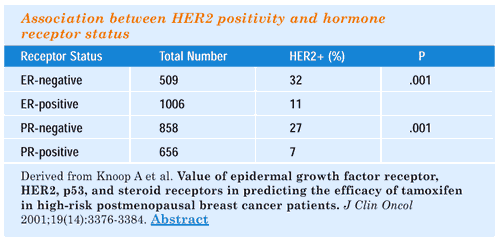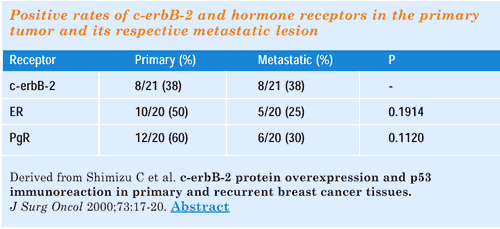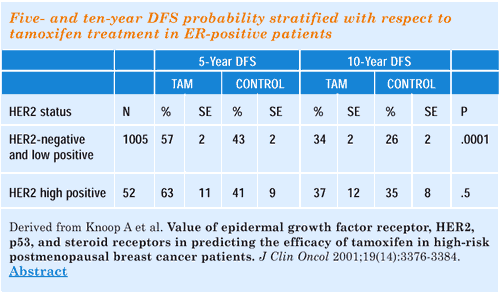|
You
are here: Home: BCU 5|2001: Section 1



CHEMOTHERAPY VS ENDOCRINE THERAPY VS TRASTUZUMAB
FOR THIS PATIENT
The options in this patient would be to either go
with hormonal therapy or with trastuzumab. There has been some concern
that HER2-positive patients might have a lower likelihood of responding
to hormonal therapies, but the studies that have looked at that
have been somewhat discordant. A majority of the studies have shown
some degree of resistance, but there are some that have not shown
any impact at all.
So, I don’t use HER2-neu positivity to exclude patients from
hormonal therapy. I still think that they are appropriate candidates
for hormonal therapy, but I do tell them that there is some literature
to suggest their likelihood of response might be a little bit lower.
In an asymptomatic patient who is going to be followed closely,
I think it is reasonable to start with the hormonal therapy.
One reason I would start with a hormonal therapy versus trastuzumab
is convenience. Instead of a weekly intravenous infusion,the patient
can be on an oral drug.Another reason is safety — even though
trastuzumab is a very safe drug, there is a small risk of cardiac
toxicity, and there are other side effects. The safety profile slightly
favors a hormonal therapy.
—Debu Tripathy, MD

CHEMOTHERAPY VS ENDOCRINE THERAPY
With regard to chemotherapy, there is no information
to suggest that this patient would be better off in the long term
starting with chemotherapy. No data suggest that survival is enhanced
by starting with aggressive therapy. In fact, if you extrapolate
the findings of the very intensive bone marrow transplant, we don’t
see an advantage. Many oncologists are now gravitating towards starting
therapy with less toxic treatments as long as the likelihood of
response is in the same ballpark. I think that this patient’s
likelihood and duration of response were probably about the same
with the hormonal therapy as with chemotherapy.
This patient’s past medical history entered somewhat into our
decision about which hormonal therapy to use first. She was treated
four years ago — in the “pre-first-line aromatase inhibitor
days,” before we had the first-line data. At the time it was
only indicated for second-line therapy, and I would only have considered
it first-line in someone with a contraindication to tamoxifen. Given
this woman’s history of deep venous thrombosis, tamoxifen was
a much less appropriate drug because of the thrombogenic potential.
—Debu Tripathy, MD
Page
2 of 3
Previous page | Next page
|
|
